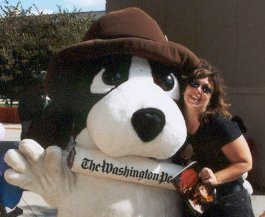
Now, now, Indies Unlimited is “Safe for Work.” Goodness no, I’m not talking about secret sex tapes or video from the hidden camera in the ladies’ locker room. I don’t want to talk about this anymore.
I do want to talk about book trailer videos. Those are for your book. Let’s stay on topic here, shall we?
Why have a video trailer? Really, now – a video trailer is like a commercial for your book. It’s a multimedia bubble-gum for the eyes attempt at getting someone interested enough to purchase your book. Some potential customers like static magazine ads, some like flash, color and motion. Magazine ads cost money. Making your own video trailer costs you only time. We’ve had posts here on IU explaining how to make a trailer on xtranormal.com and Animoto. Take the time to read those. Animoto is an amazing tool and has a much shorter learning curve than xtranormal. I’ve made trailers using both and in my humble opinion, Animoto’s where it’s at. Read the tutorial. Trust me.
So, now you’ve made your video trailer. Congratulations! I’m sorry, what? What do you do with it now? That all depends on how ambitious you are. Here are my recommendations. Continue reading “Tuesday Tutorial: Building Your Video Empire”



